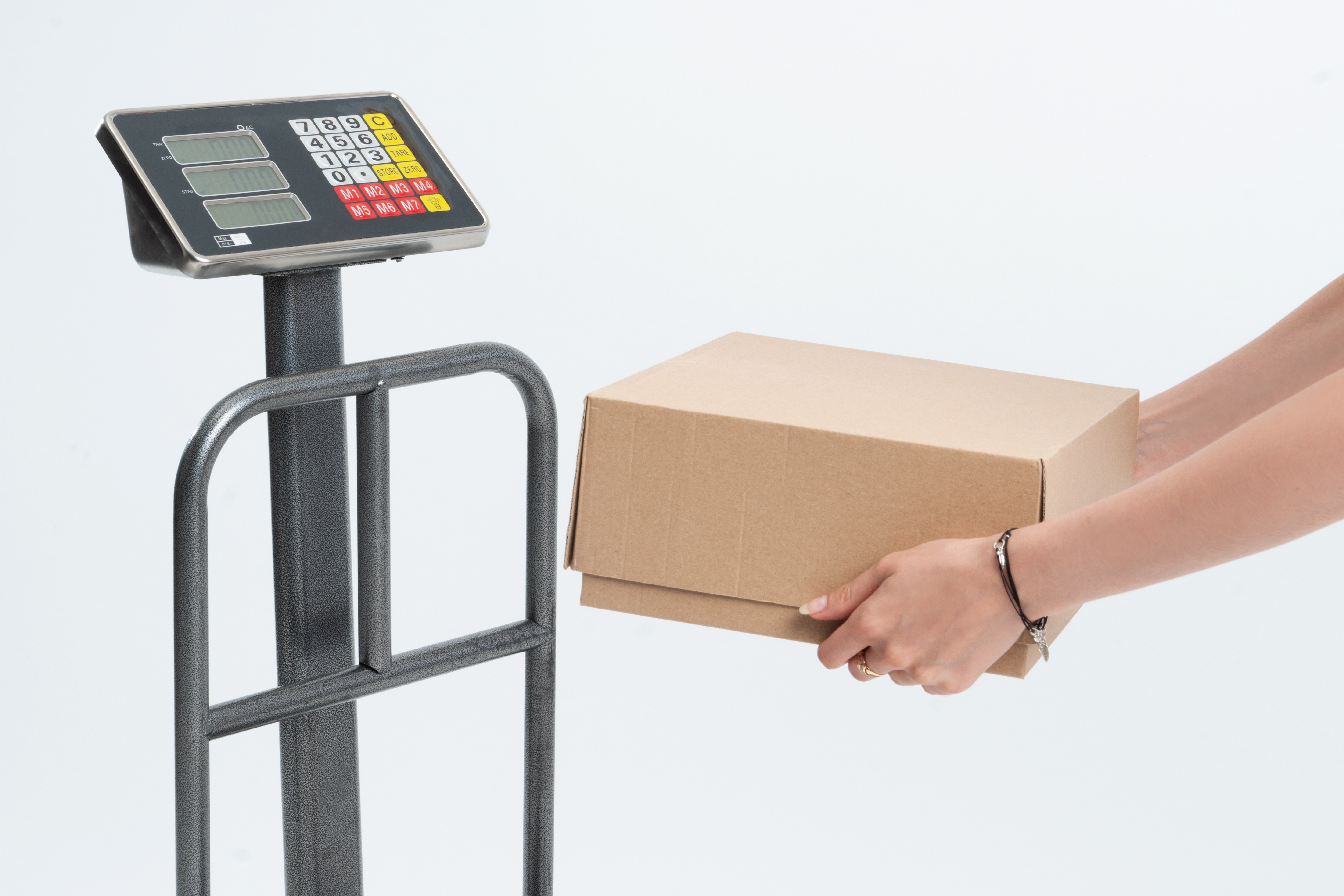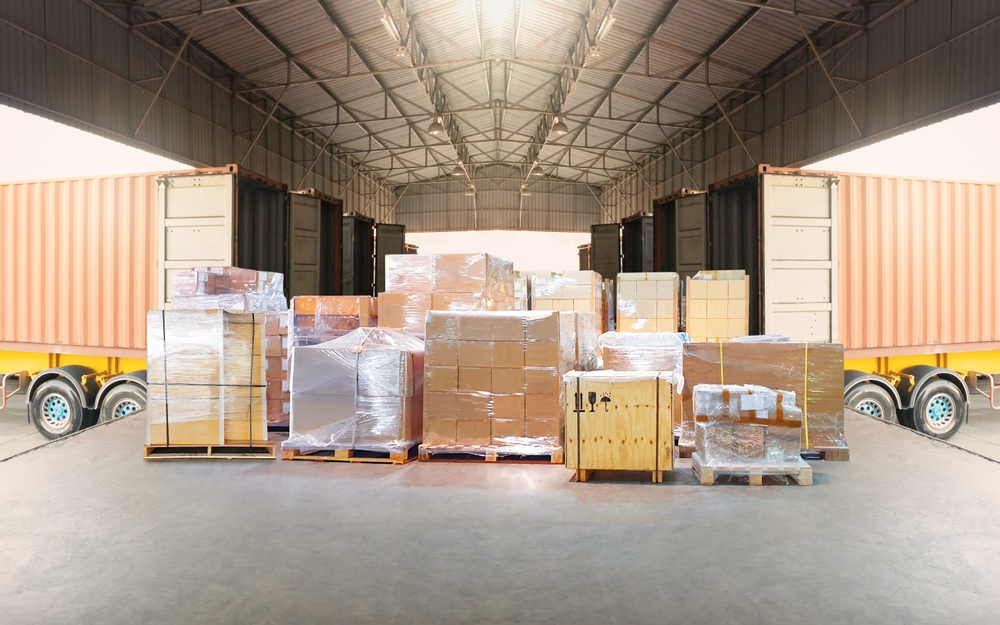A Comprehensive Guide to Shipping Internationally


Shipping goods across borders opens up enormous opportunities for U.S. retailers, manufacturers, distributors, and e-commerce brands. But international shipping is more than just packing a box and printing a label. Although it opens up global markets for your products, it also adds layers of complexity. It's a strategic process involving documentation, customs regulations, insurance, and careful cost management.
This international shipping guide covers everything U.S. businesses need to know about moving goods globally – from understanding shipping rates and customs documents to securing full-value insurance and staying compliant with international shipping regulations.
Understanding International Shipping Rates & Fees
Calculating international shipping costs can be tricky because carriers base their rates on several factors at once. Shipping rates vary based on package weight and dimensions, shipping zones, carrier selection, customs fees, and insurance coverage. Key factors that influence international shipping costs include:
- Weight and size: Especially volumetric weight. Heavier and bulkier items cost more to ship.
- Distance and route: The longer the distance between origin and destination, the higher the shipping fees.
- Carrier and service type: Carriers set shipping fees based on the service type (standard, expedited, freight, etc.). Expedited or priority shipping costs more than economy options.
- Customs duties and taxes: These depend on the shipment’s declared value and Harmonized System (HS) code.
- Insurance coverage: Full-value protection can slightly increase costs but prevents major losses.
Cost-Saving Strategies: Cheapest Way to Ship a Package Internationally
At UNIVAL Logistics, we’ve perfected the balance between speed, cost, and safety. By leveraging relationships with leading global shipping carriers and fleets, UNIVAL secures discounted international shipping rates that minimize costs without cutting corners on reliability.
Our logistics experts analyze multiple routes across air, ground, and ocean, negotiate competitive rates, and consolidate shipments whenever possible to lower your overall shipping costs. Simply put: we make global delivery affordable, secure, and efficient. You can also reduce costs on your end by optimizing packaging (avoiding oversized boxes) and planning shipments in bulk.
Carriers often offer bulk or business discounts, so ordering shipments in batches and having a logistics partner like UNIVAL to compare carriers and consolidate loads can significantly lower your shipping fees.
Essential International Shipping Documents & Customs Paperwork
Every international shipment requires specific paperwork to satisfy customs authorities in both the exporting and importing countries. No matter how you ship, thorough documentation is key to a smooth transit and customs clearance. Ensuring that the correct paperwork accompanies your shipment is crucial to avoid delays, penalties, or even seizure of goods at customs.
Below are essential international shipping documents you should be familiar with. Always double-check your customs paperwork for accuracy and ensure consistency across documents – even minor errors can delay customs clearance or trigger unnecessary fees. Always attach a printed copy of the commercial invoice and any required customs documents to the package, under the plastic sleeve or pouch provided by the carrier.
1.Commercial Invoice
The commercial invoice is one of the most important documents in international shipping. It serves as a contract and a proof of sale between the buyer and seller, and is used by customs authorities to assess duties and verify the shipment’s contents.
It details the goods being shipped, including descriptions, quantities, and declared values. All information on the commercial invoice must exactly match what’s on your shipping label and any other paperwork, as it's critical for customs clearance.
2.Bill of Lading (BOL) / Air Waybill
The Bill of Lading is a legally binding document issued by a carrier to a shipper. It acts as a shipment receipt, a document of title, and evidence of a contract of carriage. There are two main types: ocean BOL for maritime shipments and airway bill for air freight. These are neccessary for the shipper to claim ownership of the goods.
3.Packing List
A packing list provides detailed information about the shipment's contents. While similar to a commercial invoice, a packing list includes specific details about each package within the shipment, such as dimensions, weight, and types of packaging used. It's primarily used by customs officials to conduct inspections and verify the contents of the shipment.
4.Certificate of Origin (COO)
The Certificate of Origin is a document that certifies the country in which the goods were manufactured. It's required by many countries to determine import tariffs and ensure goods comply with trade agreements. It helps secure preferential tariff rates under specific trade agreements, such as NAFTA or ASEAN.
5.Customs Declaration / Forms
Depending on the goods, you might also need export licenses or country-specific customs forms, required by the customs office to assess import duties and taxes. In the U.S., common forms include the AES (Automated Export System) filing for exports over $2,500, and FinCEN 105 (for carrying currency or monetary instruments over $10,000).
Many exporters delegate customs paperwork to a licensed broker, but as the shipper, you are ultimately responsible for preparing all necessary customs paperwork. Check the destination country’s customs website or a global trade database to find which documents you’ll need.
6.Export / Import License (if applicable)
In certain cases, an export license is required to ship certain goods internationally, particularly if they are subject to specific regulations or if the volume or frequency of trade exceeds certain thresholds. Some governments control or restrict the export of certain goods due to security concerns, economic protectionism, or domestic shortages. Verify whether your merchandise requires an export license before shipping.
An import license is also required when the destination country regulates the import of specific types of goods, as it grants permission to bring products into that country. Not all countries require an import license, but it's essential to verify the requirements for the product and destination.
Navigating Customs Clearance, Procedures & Import Duties
After you’ve shipped your package with the proper documents, it will arrive at customs for clearance – the process by which a shipment is reviewed by customs authorities to enforce the country’s import regulations. This is one of the most critical stages of the international shipping process, as it ensures that your goods meet all customs regulations and customs requirements before they can legally enter the destination country.
Both the exporting country’s customs (e.g., U.S. Customs and Border Protection) and the destination country’s customs will inspect the paperwork and may physically inspect the goods. Here’s how it works:
- Your customs documents and shipment data are submitted to the customs office (invoice, permits, certificates, etc.)
- Customs officials review your declaration, verify your HS code, and calculate import duties and taxes. The amount of duty charged depends on the goods’ classification and declared value.
- You pay any required import duties and taxes, and answer any queries from the customs office. For most everyday goods, the duty rates range from about 2.5% to 6% of the shipment’s CIF (Cost, Insurance, and Freight) value, though rates vary widely by product. Certain countries or products may attract additional tariffs.
- Once approved, your shipment is released for final delivery.
If any customs requirements are unmet, shipments can be held up indefinitely, fined, or even confiscated.
More on HS Codes and Tariff Classification
A key to accurate duties is using the right HS code (Harmonized System code) for your products- a global 6-digit product classification system maintained by the World Customs Organization. Every country uses HS codes to determine tariff rates and control the import of goods. In practice, you will classify your goods using a 10-digit code: the first six digits are the international HS code, and the remaining four digits are country-specific.
For example, a product exported from the U.S. needs a Schedule B number (for exports) or an HTS number (for imports) that begins with the same 6 digits as the HS code. Why is this important? The HS/HTS code directly affects import duties. Customs calculates taxes based on the code and the shipment’s declared value. If the wrong code is used, you could pay too much duty – or worse, face penalties for mis-declaration. Tools like the U.S. Census Schedule B search or the customs info databases can help you find the correct code.
International Shipping Restrictions and U.S. Customs Regulations
Every country has its own international shipping restrictions and customs regulations. Some products require special permits or certifications before crossing borders. For instance, precious metals, pharmaceuticals, and electronics are heavily regulated in many regions. Whether shipping from or to the U.S., businesses must also heed specific U.S. customs regulations and limits.
Common restricted or controlled categories include:
- Fine jewelry, gold, or gemstones (subject to value limits and origin declarations)
- Electronics with lithium batteries (subject to HAZMAT restrictions)
- Tech products with encryption (may need an FCC review)
- Perishable goods and food products / agricultural goods (often require USDA permits)
- Hazardous materials and chemicals
For example, businesses should be aware of the U.S. customs gold jewelry limit. Shipping gold jewelry above $10,000 triggers a FinCEN 105 monetary instrument report. Check the U.S. CBP website for the latest updates on restricted categories. Likewise, the destination country will have its own import rules or bans. The key is to research both ends.
For any questionable item, contact the customs office or a broker in that country before shipping. It’s far better to find out an item is banned before it leaves your warehouse than to have it seized in transit. Always do a quick compliance check for embargoes, sanctioned parties, or denied parties when shipping overseas and stay current with both U.S. and foreign customs regulations.
Delivery Duty Paid (DDP) vs. Delivery Duty Unpaid (DDU)
Regarding duties and taxes: Who pays them? Understanding how taxes and duties are handled is key to setting customer expectations and calculating profit margins.
- Delivery Duty Paid (DDP): The seller is responsible for all import duties, taxes, and fees. The buyer receives the shipment with no additional costs. DDP simplifies the buying experience and builds customer trust.
- Delivery Duty Unpaid (DDU) / Delivered at Place (DAP): The buyer pays duties and taxes upon delivery. While this can reduce your upfront costs, it can also cause delays or unexpected charges for your customers.
Many online retailers choose DDP to provide a seamless experience to customers: you collect the duty at checkout and handle the customs paperwork, so no surprise charges arrive at the door. DDU can save you money up front, but it shifts risk and potential customer frustration (if they refuse to pay, the goods are stuck). Whichever term you use, clearly state it on your invoice and communicate it to your customers.
International Shipping Insurance: Protecting High-Value Overseas Cargo
Shipping valuable goods overseas carries inherent risk – loss, theft, or damage can occur despite all precautions. That’s why international shipping insurance is so important, especially for businesses handling high-value products, such as luxury goods, electronics, or collectibles. Unlike basic carrier liability, which offers limited protection that covers only a few cents per pound, full-value insurance reimburses you for the item’s actual worth up to a high limit.
UNIVAL Logistics provides full-value international insurance coverage up to $100,000 per shipment for international deliveries. It gives you complete peace of mind that your reputation and bottom line are protected anywhere in the world. The cost of shipping insurance is usually a small percentage of the shipment’s value (often 0.5%–2%). Given the stakes, that cost is almost always worth it.
The small premium you pay today can save your company thousands in losses tomorrow. With UNIVAL's insured shipping options, you can ship internationally with confidence, knowing your assets are covered by a trusted global partner and that if the worst happens, your business won’t be left holding the bag.
How UNIVAL Logistics Simplifies the Global Shipping Process
Your shipping strategy is your blueprint for efficient, affordable, and compliant international delivery, and a way to maximize efficiency and minimize headaches. A strong logistics partner like UNIVAL Logistics can help you balance speed, compliance, and cost-efficiency while keeping your customers satisfied.
UNIVAL is an end-to-end logistics partner domestically and internationally that handles every step of the shipping process with care and meticulous attention to detail.
- Global network: Strong partnerships with major shipping carriers worldwide.
- Expert compliance: Guidance through every step of customs procedures and customs documentation.
- Cost savings: Discounted shipping rates, consolidated packages, and optimized routing.
- Insurance protection: Full-value coverage up to $100,000 for international shipments.
- Security focus: Specialized handling for high-value items.
- Cutting-edge tools: All vehicles are equipped with onboard recorders for end-to-end tracking with real-time updates so you and your customer know exactly where a package is at all times. You can also integrate your ecommerce platform or shipping software through our shipping API to streamline the shipping process and manage multiple online orders.
UNIVAL’s mission is simple: help businesses expand internationally with confidence by offering the most reliable, secure, and cost-effective logistics solutions available.
Ship Smarter to Any Corner of the World with UNIVAL Logistics
International shipping doesn’t have to be complicated. With the right knowledge, preparation, and logistics partner, you can expand your market worldwide while keeping costs in check and minimizing risk. UNIVAL Logistics provides the comprehensive, secure, and cost-effective support you need to move high-value cargo safely across borders.
We serve as an extension of your team and handle the details – from negotiating multiple carrier routes for the lowest rates to preparing insurance and clearance paperwork – so you can ship internationally with confidence. By following this international shipping guide and leaning on expert secure shipping services, your business can scale globally, satisfy customers abroad, and keep delivery safe, on time, and cost-effective.
Latest blogs
Dimensional (DIM) Weight in Shipping: What It Is & How It’s Calculated
Wed, Jan 14th 2026, 07:11
 Continue Reading →
Continue Reading →
Shipping Gold Safely: Packaging, Insurance & Best Practices
Mon, Jan 12th 2026, 03:00
 Continue Reading →
Continue Reading →
Categories
defaultCall Us Today
Get premium full-value shipping insurance at affordable rates and be sure your parcels are 100% safe during transport. Work with a logistics powerhouse - get in touch with us today.
213-368-3444
Contact Us
Want a peace of mind when shipping valuable packages? Our experts are happy to ansver any questions you may have and provide you with a tailored soulution that meets your unique shipping needs. Email us today and ship your luxury items with ease!

.jpg)

